Alika Kinan: Surviving Prostitution and Fighting Against the Exploitation of Women and Girls
Marta Nunez interviews Alika Kinan
Translated from Spanish by Claire Thompson
Alika Kinan is a survivor of prostitution, Human Trafficking by sexual exploitation and an abolitionist activist. She is a researcher on trafficking and exploitation of people to help improve the processes of analysis, formulation, development and application of legislation and public policies on the matter. She has received recognition for her work in national and international circles, among these:
The 2017 Heroes Against Modern Slavery Recognition, awarded by the United States Department of State during the International Encounter Against Trafficking in Persons, and held at the Washington Capitol.
The 2016 Recognition of Merit, awarded by the Deliberative Council of the city of Ushuaia, Argentina.
The 2015 Outstanding Woman of the Year award, granted by the National Senate of Argentina.
Among her main achievements is having won the first case in which the victim, after having been rescued from 16 years of sexual slavery, becomes a plaintiff to litigate against her pimps and a Municipal State, which the Court of Federal Cassation considered an accomplice. Today, her entire life revolves around the fight against the exploitation of Women and Girls. She currently works in the Academic Secretariat of the National University of San Martín (UNSAM) directing the Program of Studies, Research and Training of Trafficking and Exploitation of Persons (PEFITE) which was authored by her and is the first to have been created and coordinated by a survivor of trafficking for sexual exploitation.
She is the President of the Alika Kinan Foundation, which provides legal and psychological assistance for victims of trafficking and exploitation, they do research and develop training processes and carry out activities and advocacy to make these issues more visible.
Alika Kinan is the mother of six children and dedicates herself entirely to her work, activism and family, as she has found her activity to be the catalyst for her process of recovery from the torture she suffered. Her motto is “Love, teach, accompany and help”.
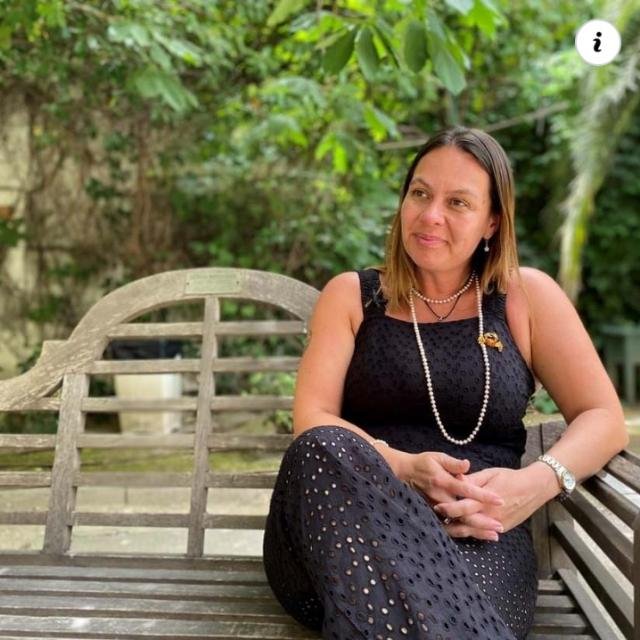
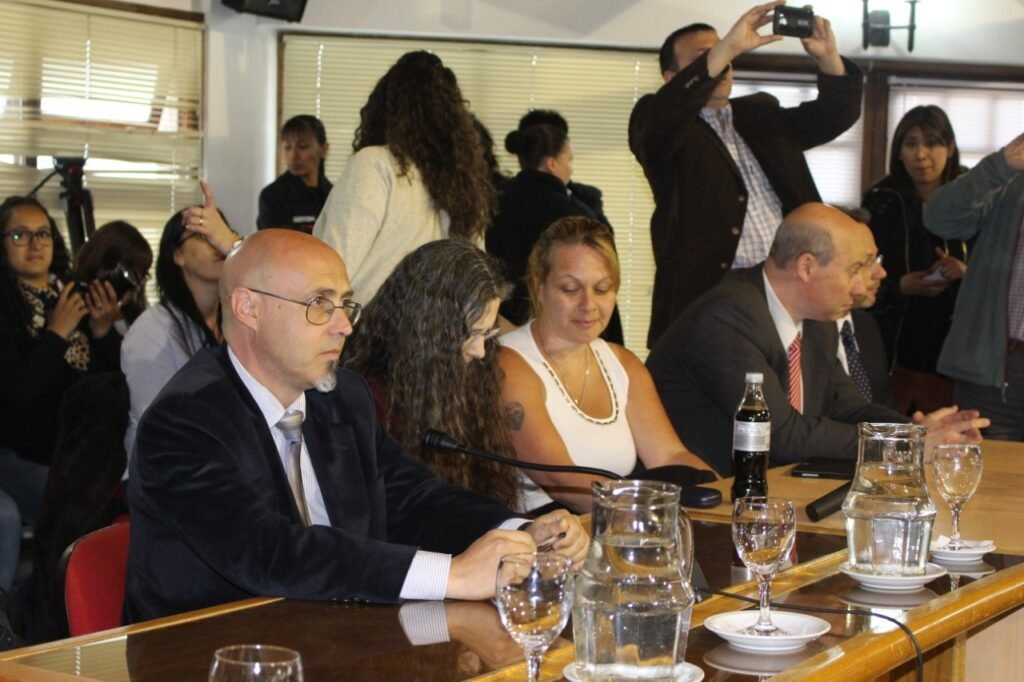
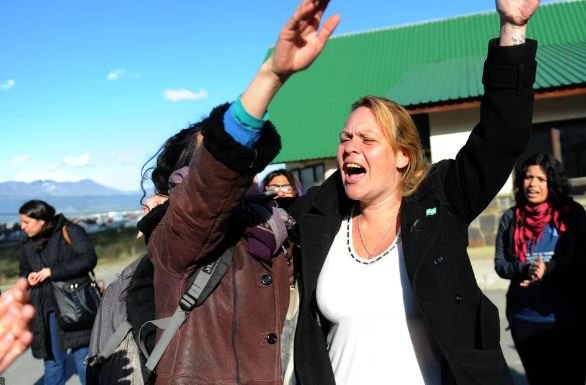
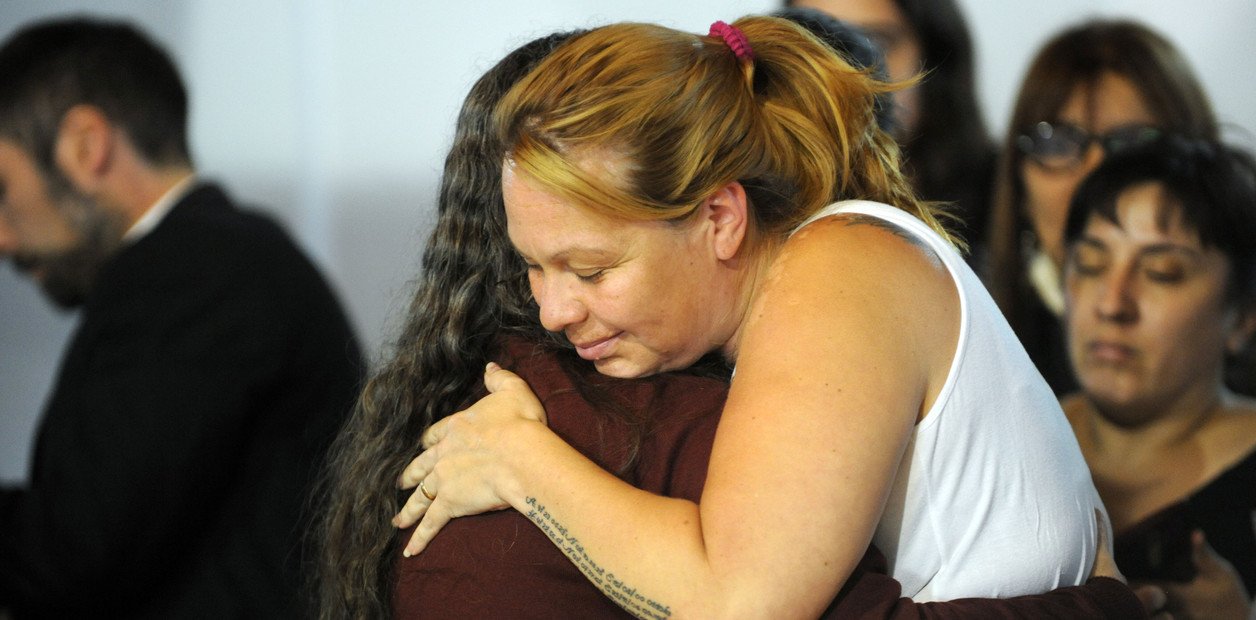
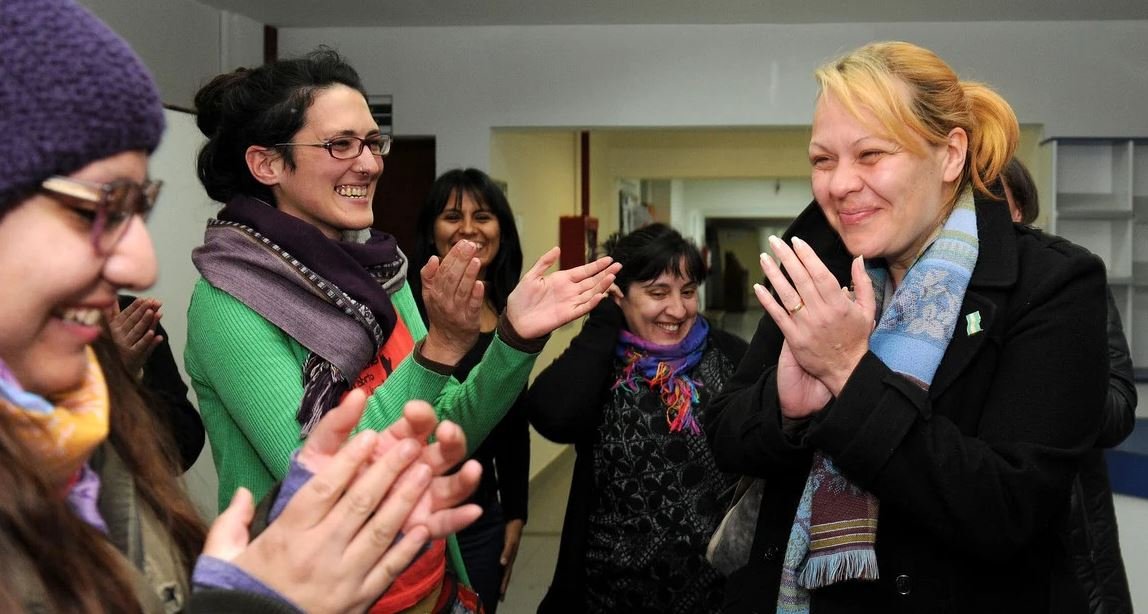
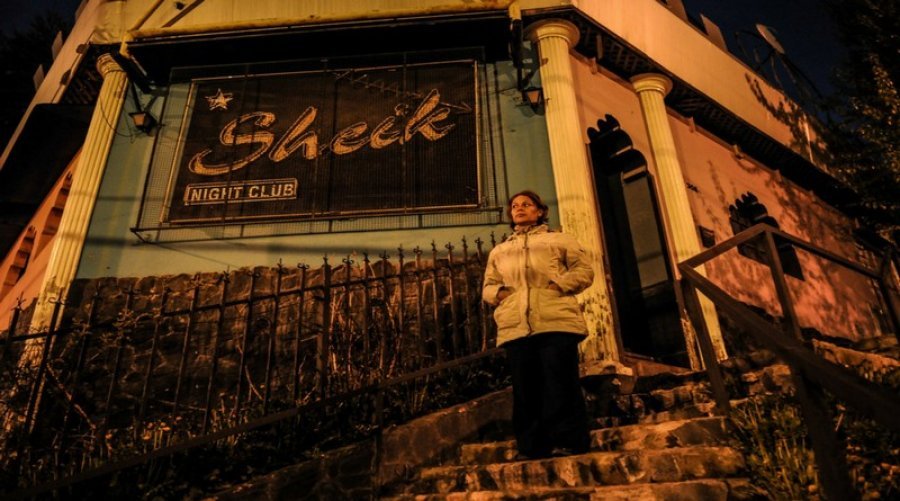
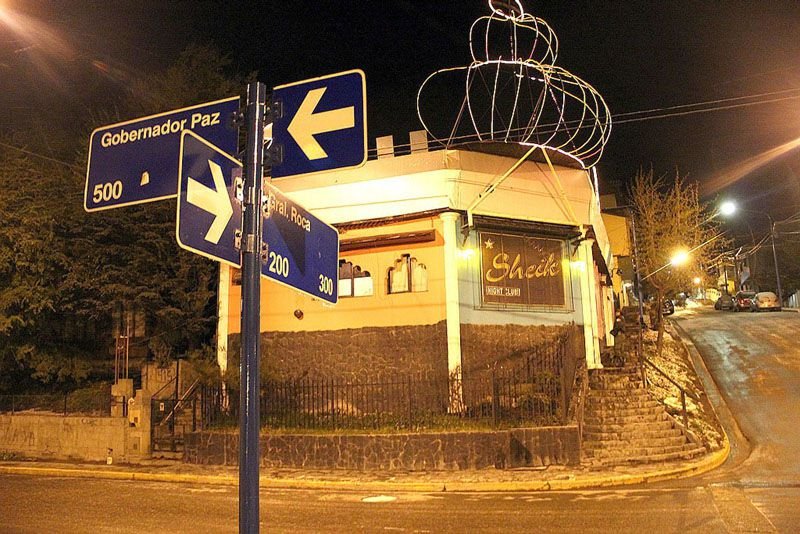
MARTA NÚÑEZ: First of all, FiLiA is very grateful to you for this interview, which gives us a more complete view of prostitution and of the trafficking of Women and Girls in Argentina.
ALIKA KINAN: I am grateful to you for the interest in my case and for giving me the opportunity to talk about it.
MN: How did you end up falling victim to the hands of pimps?
AK: I was 16 years old, from a dysfunctional home with serious financial problems and a childhood marked by violence. When my parents separated, I was left to look after my younger sister. There was no kind of family support, not even support from the state, so I went out to find work. I was an ideal victim for criminal organisations, who were quick to spot my vulnerability. They suggested something around the lines of “Are you looking for work? You are pretty, you can earn lots…”
This was happening when I left Córdoba, the province where I lived, and headed to the capital, Buenos Aires. I was alone and with no idea how I was going to be able to cope. I was not looking to go into prostitution, of course, or for men to look after me. I was looking for work, work that that would cover the basic costs of living both for me and my sister.
MN: Is your case representative of how youngsters get caught up in Argentina?
AK: Definitely. Latin America is a region in constant crisis. It’s about Women trying to survive, to feed their children, and you walk the streets searching for some kind of help. We’re easily captured, moved away, exploited. I wasn’t only prostituted in Argentina, but also trafficked to Spain where I spent eight years as a sex slave. It’s not like in the movies where they kidnap you and you disappear. Criminals use manipulation and coercion, and you eventually are trapped. Naturally, responsibility lies with the state and with a complicit society. Without clients there would be no prostitution, and without prostitution there would be no trafficking. Without state complicity, criminal organisations wouldn’t develop and multiply, carrying on with impunity and even, in some cases, capitalising on their political influence.
MN: How did this nightmare begin?
AK: They said that they needed some Women for the opening of a “boliche” called Shaik (a type of bar/disco) in Usuhaia, the capital of Tierra del Fuego. It’s a remote part of Argentina nicknamed El Fin del Mundo [The End of the World] because it’s where South America ends. Of course, it was a trick, and I soon found myself prostituted to twenty, thirty men each night. It was not a nightclub; it was a brothel. My body could not cope. I had to put ice in my vagina to reduce the inflammation. I lived as if in a dream, in a fantasy in which I thought I was free. I could come and go from the club… but where was I going to go? I moved to another brothel, “Black and White”.
MN: I understand that this was for a long time, many years…
AK: Sixteen years in total. In different establishments. Also in Spain in a state of servitude and sexual slavery. It is both complicated and hard to survive, and getting out is even harder. They make you indebted, and out of sheer desperation drugs and alcohol trap us in further. They gave us a percentage of the money, but took off money for rent, cleaning products, anything at all that we needed. It’s a system that exploits you until it destroys you, until you are of no further use to them. Sexual exploitation leaves us empty and ill, rotted, in every sense of the word, both inside and out.
MN: Did you think that you were going to get a new life in Spain?
AK: I met a man in Tierra del Fuego, in the brothel, and somehow, I saw him as my saviour, someone sent to rescue me. I wasn’t in love – it was a way to get out of the system because he paid off all of my debts to my exploiters. I gave him what little savings I had. After travelling for a while, he put me to work in a brothel, in fact he took me to visit many of them, one by one, so he could choose which one. Then add domestic violence to the sexual exploitation. I had two daughters there. It was so hard for me to face them, to explain. So much pain, so much shame.
How had my life become such a puzzle of exploitation and suffering? How could it be solved?
MN: Could you explain to us your process of liberation, how you have become the Alika Kinan of today? How, from being a victim, you managed to prosecute both your direct exploiters and the Argentinian state for the long years of exploitation and torture that you suffered.
AK: Very difficult! I managed to return to Argentina… but where I was going to go? So I returned to the brothel. I can see now that I was caught up in this vicious cycle of exploitation.
In 2012 the Gendarmerie (border police) appeared in the brothel for an inspection. They got all the Women out of the brothel, but I still could not see myself as a victim. Like all my fellow victims, I had no idea about the crimes of prostituting and trafficking people. There is a social blindness in every society, so victims do not realise just what they are – victims. I did not know that it was a crime against humanity. Inside of me, my mind was totally fractured. This mental state is how we end up victims to alcohol and drugs, which we use to try to bear the horror we are living through.
I remember a Girl who, when she was drunk, would scream at the johns that they were rapists. The pimps would then punish her, but we thought that she’d gone mad. So yes, it’s true: when I could see the truth I became the first Woman to demand a punishment for my pimps and for the state. This was a really important milestone, not only in Argentina but also in other countries.
How did I do it? I had everything I needed: my family was with me, I had emotional, psychosocial and above all financial support to be able to push forward my case. I also had an inner strength pushing me daily to seek the justice I deserved, and which, even today, I am still striving to achieve. It needs to be said that victims need this kind of support. It’s incredibly difficult to get to the point of reporting a crime, because either they use our own fear to beat us, or they kill us.
My life changed the moment I was rescued and could reunite with my daughters. I had to take a long, hard look at my past life and the reasons for it. It wasn’t easy going through all of that pain and frustration to reach the point where a legal representative could be found. And later I reached a fabulous point of empowerment and resilience. To not have to beg the father of my daughters for my right of access to them. I knew I could now look after them and support them. I lived through the vicarious violence which men exercise when it doesn’t matter how much they hurt their own children just to get at their mother.
On 30 November 2016, the court decided in my favour. The city of Usuhaia was ordered to offer me financial compensation. The owner of the Shaik received a prison sentence of seven years and had to pay a fine. The other pimps had to pay fines and received suspended sentences. The prosecutor stated that even though the penalties were less than the prosecution had requested, the verdict was a change in the way the judicial system viewed sex trafficking.
MN: How do you position yourself in current debates proposed by certain sectors that affirm that prostitution is “work” which should be regulated, the same as any other job.
AK: I am for freedom of choice when it comes to what we do with our bodies. In prostitution, it’s the “buyer” who makes the decision, not the Woman. Because of this, I am against prostitution because it militates against Women’s integrity.
Prostitution systematically auctions us off, treats us as though we were nothing more than mouth, vagina, anus. It erodes us as human beings. It treats us as though we are meat in a butcher’s shop. We must abolish prostitution and generate a dignified base for all Women.
MN: How do you see the situation at a global level?
AK: We need anti-prostitution, and consequently anti-human trafficking laws, including a promise to rescued Women not to drop them into poverty, where they’ll be revictimized by other criminal organisations. This is what happens with Women that were rescued here in Latin America. Running from poverty, they migrate and end up exploited in the Netherlands or Switzerland.
We need an abolitionist Europe, an abolitionist world where the central tenet is human rights and protecting the sexual integrity of Women and children. This is a financial crime, which destroys dignity. We must flag up the root of it: that men pay for sex.
MN: You have achieved a lot, both creating your own organisation and becoming a professor in an Argentinian university. Tell us about life today.
AK: We are actively working to develop legal projects and research alongside the Defensoría del Pueblo de la Ciudad de Buenos Aires (Ombudperson’s office of the City of Buenos Aires). We have managed to convene with Trenes Argentinos (the Argentinian railway system) making their staff aware regarding trafficking. In addition, we help Women who had fallen victims, assisting them to find jobs. We have created social media links where we post daily and update with information about our work. You can know more about our job through the following social media:
Twitter: https://twitter.com/alikakinanfund
Instagram: https://Instagram.com/alikakinanfundacion
Website: http://fundacionalikakinan.org/
MN: Finally, is there any way in which FiLiA can support your work?
AK: For us the support of global organisations is key. As you said, you can “amplify our voices” to be heard, getting recognition of our work. One way is attending your conferences and meeting with other organisations working on our issues. It would be fantastic if FiLiA could collaborate with us facilitating contacts and helping to creating synergies between Women with the same goals that could help us with suggestions of how to fight against prostitution.
At the moment, we are looking for as much support as possible for creating round tables where members are victims and survivors. We are enabling them so that the Women themselves will become able to claim their own rights. To this end it is important to implement education programmes including history, politics, office administration, law, being able to use the appropriate language for advocacy orally and in writing… Any proposal or suggestion from FiLiA and their members will be gratefully considered. And we would be very keen on the creation of alliances.
MN: On behalf of FiLiA, thank you for the information and experience that you have shared with us, that I am sure will make an impact on our members. And thank you for the links that you have provided to get in touch with you.
